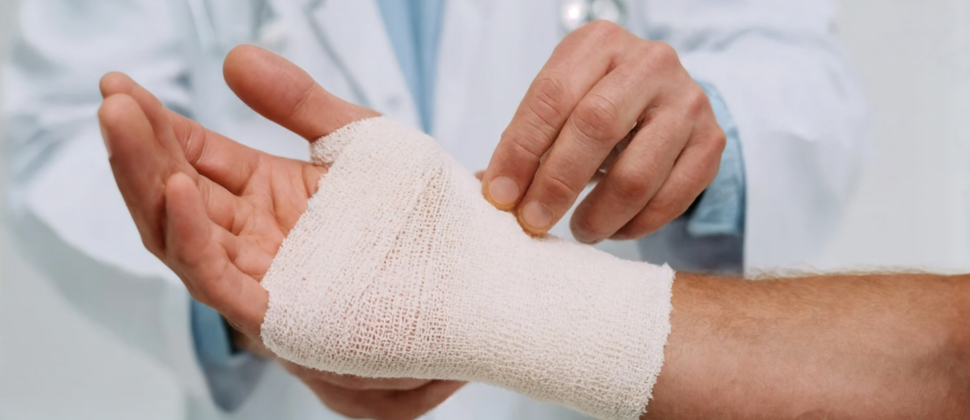How Does Personal Injury Work in Florida?

Unexpected personal injuries can leave you in pain and in fear of how you can financially afford the medical treatments necessary to return to work. Building a personal injury case and pursuing monetary compensation can remove some of the burden from your shoulders. You may be wondering, “How does personal injury work in Florida?” and “Do I qualify for a personal injury claim?”
What Is Personal Injury?
A personal injury claim can occur when an individual is harmed because of the negligent, intentional, or reckless action of another. The state of Florida experiences a significantly large number of claims.
The largest percentage of nationwide personal injury claims is from motor vehicle accidents. There were 246,153 reported injuries in Florida from crashes in 2023. While car accidents are a common reason to file a personal injury claim, there are numerous incidents where individuals have grounds to file a claim. For example, it is estimated that 4,000 surgical errors occur each year nationwide.
What Are Some Common Types of Personal Injury?
Personal injury is a broad description. Overall, it includes bodily, emotional, and reputational harm caused to an individual. Some of the most common examples of personal injury occur from the following:
- Auto accidents
- Wrongful death
- Premise liability
- Medical malpractice
- Product liability
- Assault and battery
How Do I File a Personal Injury Claim in Florida?
Filing a claim is the only way you can pursue monetary compensation for the personal injury you have experienced. The steps are as follows:
- Document the incident: Documentation is a key element of every case, whether criminal or civil. You will want to write down or record your recollection of the event. If you can take photos or video of injuries or the scene, that provides great evidence for your claim.
- Seek medical attention: This is a very important part of the personal injury process. Not only will it help you physically, but the reports from a medical professional can be a compelling aspect of your case.
- Gather any essential forms of documentation: Documentation comes in many forms, such as testimonials, emails, and medical records.
- Notify any insurance companies involved: You will need to let insurance companies know about your injury if you want to receive coverage and pursue your claim.
- Connect with a Tampa personal injury law firm: Your greatest asset while navigating the personal injury legal process will be a skilled and compassionate personal injury lawyer. Not only will they be able to guide you every step of the way, but they can share the burden with you, freeing you up from the legal and administrative aspects so you can focus on the personal ones.They can skillfully negotiate a settlement out of court, but if it becomes necessary, they can also confidently advocate for you in court so that you can obtain a compensation package that covers all of the impacts of your injuries.
How Do I Know If I Have a Personal Injury Case?
If you are not sure if you have grounds for a personal injury claim, it is wise to schedule a consultation with a Tampa personal injury law firm. An experienced personal injury attorney will be able to determine if you have enough reason and evidence to file a personal injury claim.
Not only will your lawyer help you understand the validity of your claim, but they can also help you with the filing process, collect evidence, and negotiate any potential settlements that may come from your case.
FAQs
Q: How Can I Prove Pain and Suffering in Florida?
A: The way to prove pain and suffering in Florida is to gather documentation. You will want to present the following when filing a claim:
- Medical bills
- Medical prognosis
- Medical records
- Expert testimony
- Pictures and/or X-rays of your injuries
- Psychiatric records
When you group together all of the aforementioned evidence, it can make your case more compelling and your need for compensation more apparent. Your personal injury lawyer will be able to help you gather the right evidence and build a solid case around it.
Q: What Is the Florida Personal Injury Protection Rule?
A: In Florida, the Personal Injury Protection Law, or “PIP” for short, states that all vehicle owners must carry a minimum of $10,000 in PIP insurance to cover potential medical expenses, lost wages, and any other injury-related costs that occur from car accidents. This is not specific to who is at fault for the accident.
Q: How Much Does a Personal Injury Lawyer Cost?
A: The price of a personal injury lawyer in Florida will vary due to several mitigating factors, such as your case’s level of complexity, the length of time it takes to reach a resolution, and the lawyer you decide to hire. The legal team at Paul Figueroa Law works on contingency, meaning if we don’t win your case, you don’t pay attorney fees. When a lawyer works on contingency, they receive a percentage of the settlement after they win their client’s case.
Q: How Is Pain and Suffering Calculated in Florida?
A: In the state of Florida, pain and suffering damages are designed to compensate for non-economic losses, such as physical pain and emotional distress. Some of the factors considered when determining pain and suffering are the impact your injuries have had on your daily life, mental anguish, and loss of enjoyment in life.
Receive Support Today From a Seasoned Personal Injury Attorney – Paul Figueroa Law
Facing a life-changing injury can be overwhelming, isolating, and expensive, especially if it leads to lost wages and a growing collection of medical bills. Fortunately, you do not need to face this unexpected hardship alone.
Hiring a compassionate and knowledgeable personal injury lawyer can free you up from handling the legal and administrative side of filing a claim, enabling you to focus on your health and recovery.
The legal team at Paul Figueroa Law is here to take on your case. With the help of their knowledge and insight, they will be able to guide you every step of the way, gathering evidence and pursuing a maximized compensation settlement so you can fully recover. Contact us today to schedule a consultation.







